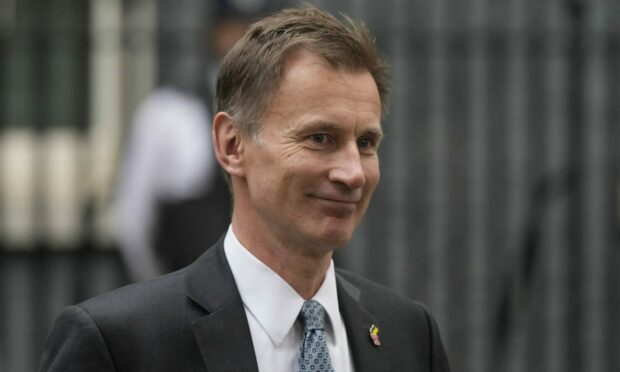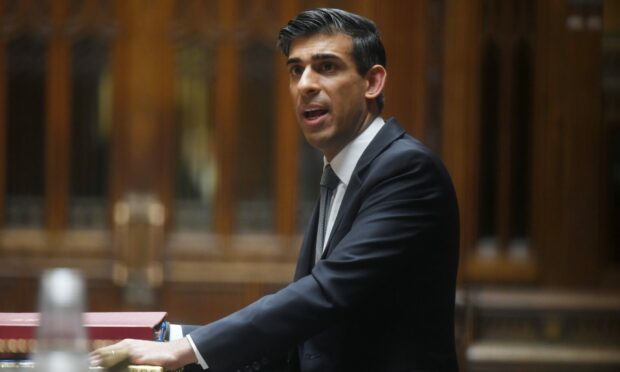UK Chancellor Jeremy Hunt will make major tax and spend decisions today as calls grow for help with household finances, an expanded levy on oil and gas, and decisions on major job-creating projects in Tayside and Fife.
The Autumn Statement presents an opportunity for the new chancellor to draw a line under the chaos of Liz Truss’ premiership.
Against a backdrop of financial uncertainty, here are some of the problems the Tories need to tackle.
1. Cost of living
Mr Hunt could choose to tie benefits and the state pension to inflation, as previously suggested.
The prime minister also pledged in May to raise benefits, when he was still serving as chancellor, but he has remained tight-lipped since then.
Further rises in gas and electricity bills sent UK inflation to its highest level for 41 years, according to official figures released on Wednesday.
The chancellor is expected to boost the national living wage by almost 10% from £9.50 to £10.40 an hour, helping more than 2.5 million Brits.
He is also said to be planning to announce another round of cost of living payments of up to £1,100 for the most vulnerable households.
But Mr Hunt has vowed to deliver a package of tax hikes and spending cuts in order to face the economic “storm”.
2. Long-awaited freeports decision
The UK Government has refused for weeks to reveal its long-awaited decision on which two Scottish bids will secure special tax status as “freeports”.
There is speculation the budget could pave the way for a decision being announced.
The announcement was expected in the summer – and we previously revealed a decision had even been taken behind closed doors more than a month ago.
Rosyth and Burntisland are included in a Firth of Forth bid which could bring thousands of jobs to Fife if it is successful.
It was also understood plans from former Prime Minister Liz Truss to give low-tax investment status to the losing bids had caused a hold-up.
However, it’s been hinted these could now be scrapped.
Four other bids were lodged by groups in Inverness and Cromarty, Orkney, Clyde and Aberdeenshire.
3. Windfall tax
Oil and gas firms are bracing themselves for a surge in the windfall tax from 25% to 35% and an extension of the scheme from 2025 to 2028.
Mr Hunt is also anticipated to widen the Energy Price Levy to include electricity generators.
Demands for a deeper levy were reignited last month when Shell reported global profits of £8.2 billion – its second highest quarterly profit on record.
There is a growing clamour for fossil fuel producers to stump up cash at a time when families are struggling to make ends meet.
However, oil and gas companies have issued public pleas to the chancellor urging him to rethink the much-expected changes.
They warn that taxing oil and gas firms in the UK for the second time in six months would risk “driving investment out of the UK altogether”.



